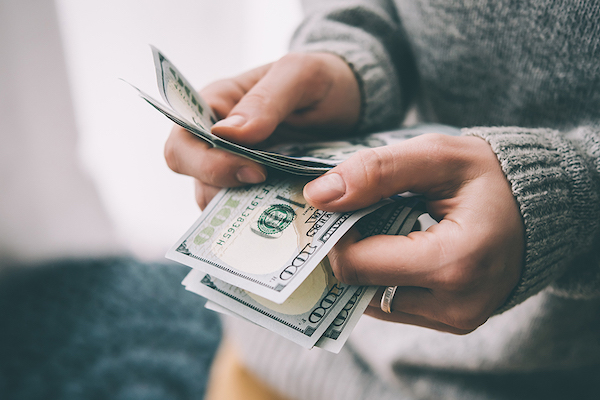Blog

Earnest Money Questions Answered
October 21, 2021
Home buying is not an easy process. Besides searching for homes in the right areas, you must go through inspections, get qualified for loans, and the most challenging part in a competitive market, competing with other potential home buyers. That’s where earnest money comes into play.
What is Earnest Money in Real Estate?
Earnest money is a deposit paid to the seller that shows you’re committed to purchasing their home and is therefore usually known as a good faith deposit. This money is paid before you close on a house, and it is typically done with a contract that includes contingencies.
Why Should You Pay Earnest Money?
You never need to pay earnest money. However, it’s a good idea to pay it when you’re trying to buy in a competitive housing market. Home sellers want assurance that a sale won’t fall through, and paying earnest money shows just that.
Another benefit of paying a seller earnest money is that it may put you in a position to negotiate better terms of the deal.
What’s the Difference Between Earnest Money and a Down Payment?
While earnest money sounds like a deposit—as you’re paying money before the closing of the house—this money is distinct from a down payment. The key difference between these two payments is how the sums are determined.
The amount you’ll have to pay as a down payment is dictated by the loan you qualify for, whereas the earnest money has nothing to do with your loan. When you talk to your lender, you’ll figure out what percentage of the money you must pay to receive a loan. This could be anywhere between 3% and 20%.
How Much Should You Pay in Earnest Money?
The amount of earnest money you should offer depends on the housing market and the asking price of the house. Typically, buyers will offer between 1% and 2% of the total cost of the house as earnest money. However, if the number of buyers is much greater than the number of houses for sale, you may need to pay more than 2%.
It’s best to work with a realtor to determine an adequate amount of earnest money to be paid. If you need a realtor in Chester County, PA, talk to Anne Townes Team, and you’ll get all the help you could need with earnest money.
What Happens to Your Earnest Money at Closing?
As long as there were no problems with inspections, and you and the buyer have closed the deal, your earnest money can go directly towards those closing costs. Therefore, your earnest money was essentially a part of the closing costs all along—it was just paid earlier.
Can You Get Your Earnest Money Back?
If the deal falls through, and you’re not purchasing the house, you can get your earnest money back. However, it does depend on several factors, and that’s why having a contract with contingencies is vital with earnest money.
If a home inspection comes up with problems, you can cancel the deal and get your earnest money back. You can include various contingencies in your contract that cover selling your own home to a situation where a home is deemed overvalued by an appraiser.
The Bottom Line on Earnest Money in Real Estate
Paying earnest money is not a necessary feature in the home buying process, yet it can be helpful to ensure you get the home you want. If you’re considering offering earnest money to a home seller, be sure to get help from a realtor you can trust as you’ll need to ensure all your bases are covered in the contract. Contact Anne Townes Team today if you need help or have questions searching for a home in the greater Chester County, PA area!